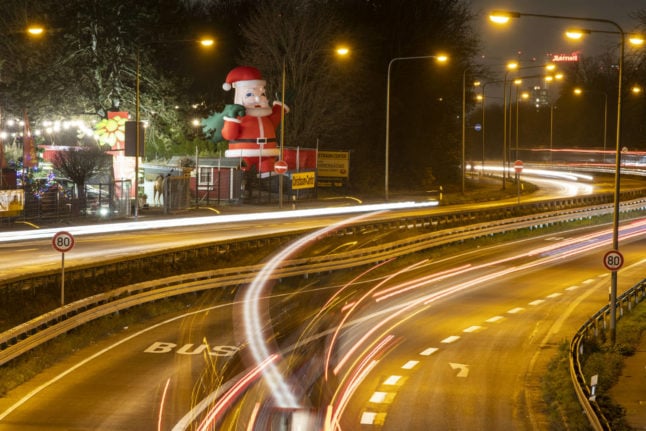Prosecutor Eric Maillaud said British police told French authorities of a financial dispute between the murdered British man and his brother, but he cautioned against drawing early conclusions.
Victim Saad al-Hilli's four-year-old daughter – who was discovered alive and unhurt hours after the shooting beneath her mother's body – had meanwhile been spoken to and was unable to give police any new clues.
A local man was also killed in the shooting after apparently witnessing the attack on the family's car.
"It seems that there was a dispute between the two brothers about money. This seems to be credible information coming from the British police," Maillaud told AFP.
"The brother will have to be questioned at length. Every lead will be meticulously followed."
He added however that it was difficult to imagine how a family feud could "pass from a financial dispute to a quadruple murder".
A French police source said the brother of Hilli, a 50-year-old Briton born in Iraq, had presented himself to British police on Thursday to declare his innocence and cooperate in the probe.
Maillaud said the little girl found in the car had been unable to help investigators, adding that officers had to be "extremely careful about the declarations of a traumatised little girl".
Post-mortem results on the four victims' bodies were due on Friday afternoon and the response to a formal request for DNA samples from Britain was expected to arrive on Saturday.
Maillaud said police were hoping to "find certain things in the home that could give us leads on the killers".
Hilli, his wife and mother-in-law were killed in their British-registered BMW estate car on Wednesday in a forest car park near the village of Chevaline in the picturesque Haute-Savoie region.
The body of local cyclist Sylvain Mollier, 45, who worked in the nuclear industry was found nearby.
Each had been shot in the head in a killing that bore many of the hallmarks of a professional assassination.
Neighbours in England said Hilli was an engineer and named the other victims as his wife Iqbal, who was carrying an Iraqi passport, and his 74-year-old mother-in-law, who had a Swedish passport. The couple's daughters were named as Zainab, aged seven, and Zeena, aged four.
Zainab was seriously injured after being shot in the shoulder and suffering a fractured skull from what authorities said were "extremely violent" blows to the head.
Maillaud said she had undergone surgery and was doing better.
"She was operated on again, she is doing well," he said. "Her state of health is no longer causing much worry. She is out of danger."
The family, from Surrey in southern England, had been staying since September 3 at the nearby Saint Jorioz camp site.
A veteran of Britain's Royal Air Force who has a second home in the area discovered the victims including Zainab whom he found wounded near to the car.
Several witnesses reported seeing a car speeding away from the scene around the time the attack took place. Investigators believe an automatic pistol was used and 15 spent bullet casings were found in the area. No weapon was found at the scene.
French authorities on Friday formally opened two criminal investigations into the shooting and said that one police officer would be leaving immediately for London to oversee coordination with British police.
One investigation is for the pre-meditated murders of the four victims, the other for attempted murder of the two child survivors, prosecutors said.
A French police source said three other police were to head to Britain on Saturday to work on the investigation.
Authorities also unblocked access to the site of the killing in Chevaline but few signs remained of the incident other than some broken glass, tyre tracks and small traces of blood.



 Please whitelist us to continue reading.
Please whitelist us to continue reading.
Member comments